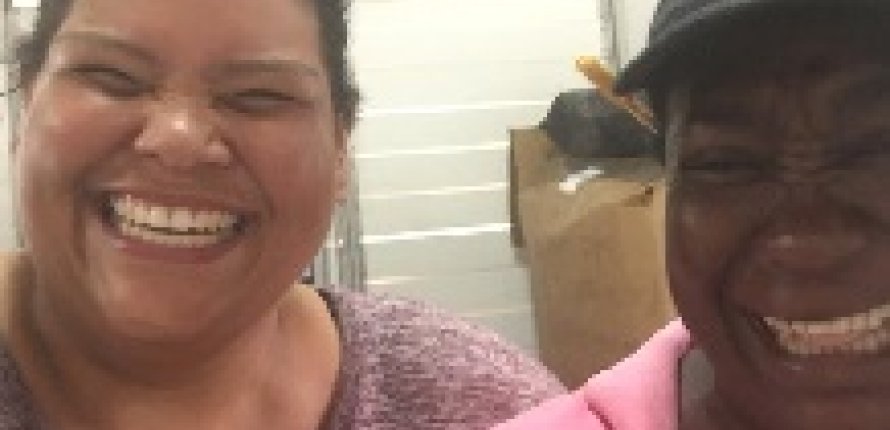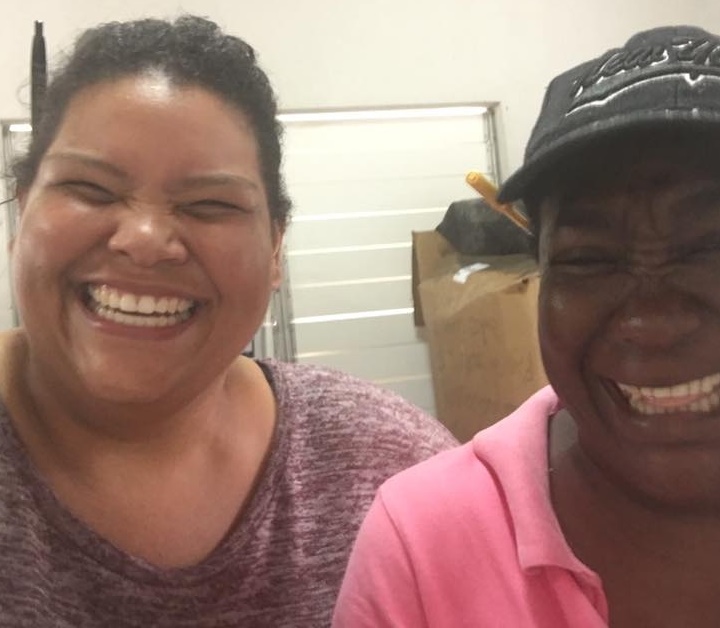A Lesson on Fear: How Re-locating to Jamaica Increased my Empathy

Inga Laurent, Associate Professor and Director of Law at Gonzaga University
2016-2017 Core Fulbright U.S. Scholar to Jamaica
As the plane descended at dusk over a hazy patch of lush, green island, surrounded by the sea, I realized that I had absolutely no idea what my life would be like for the next nine months. I have not been in such an unpredictable situation in ages. Like most Americans, I live in an environment that is almost entirely predictable, to the point of even seeming mundane, and so the idea of moving to Jamaica to research restorative justice for nine months on a Fulbright grant was exciting in theory. As I moved from the theoretical into the practice of living a new reality, I was anxious. In minutes, I would be landing in a world wholly unfamiliar, one that I had only read and heard about but never experienced.
I had a heightened awareness that safety could be an issue here. This message was reinforced at the Fulbright orientation, in the news, through messages from locals and past visitors, in online forums, on the university’s campus security webpage--an endless amount of information conveyed the importance of safety. The instant I touched the ground, images emphasizing this perception were omnipresent. In Kingston, you can’t throw a rock without hitting a security guard, they are everywhere --at the entrance to every gated community, in and outside every supermarket, mini-market, and gas-station. The ATM doors lock behind you, roads are littered with “sleeping policemen” (speedbumps), walls and chain-link fences surround most everything, you cannot even drive into a parking lot without having to pick up a card from a security guard that you must present before you leave to ensure you are the rightful owner of the vehicle that you’re driving or riding in. For the first time in a long time, my safety seemed to be in question.
I envisioned a difficult but manageable adjustment to my new life, but I morphed into a person I didn’t quite recognize, as I was shackled by my fear. I felt horrible and within the first 24 hours, I was second-guessing my decision. Everything became puzzling and substandard; simple adversities seemed to need herculean strength to overcome. This reality was exhausting.
My malaise, discomfort, and the person I was becoming came alarmingly into focus during one of my walks home from campus. It was a balmy Friday afternoon, I was sweating, uncomfortable and in a rush to get into the one air-conditioned room in my home, when I saw a man, probably in his 20s walking on the road. The phrase “he doesn’t seem like he belongs here” rolled around in my head. Alarm bells rang, thoughts of how I would fight and what I would do if attacked raged through my head and adrenaline pumped. I steeled myself, put on the nastiest face I could muster and practically stomped past him. I was momentarily proud of myself for projecting such a hard appearance and “saving myself” from potential catastrophe. I walked past my house in case he was around the corner plotting on how to break in my apartment. I was being “safe” and “using my common sense.” I spent the rest of the afternoon with a nagging feeling, listening for sounds, and worrying.
Simultaneously, I had a sense of unease with myself and my behaviors. I kept looking at the situation, thinking about the many ways that “keeping safe” prevented fostering connection. I knew this protectionist mentality was not aligning with how I want to be in the world and would eventually stop me from understanding Jamaica. And the use of that word “belong” was really the final straw. Who was I, a foreigner, to talk about belonging? This is a word that has been used to justify horrific profiling, discrimination and worse, and here I was “othering” to preserve my stuff?!? I just couldn’t stop thinking about the list of things I needed to “protect:” my passport, ID, money, things. I was convinced that I would crumble and wouldn’t survive without them. In fact, I felt strangely, righteously justified in defending my things against any and every perceived threat at almost any cost. I kept shopping to buy more things that I thought would make me feel comfortable, which of course would put more at risk of being taken, and none of my purchases could make me feel better because what I really wanted was safety and connection. To feel pseudo-safe, I stuffed myself, stuffed down my feelings, locked up physically and emotionally. I knew I could not live this way, but escaping the reality my mind had created was immensely difficult.

Mercifully, it all changed in an instant, well an evening…the way that life often does. I was invited to see Garvey. The warmth of the locals who had offered to take my friend and I was instantly soothing and my self-created distress started melting away. The musical was phenomenal, and I was instantly drawn into the story, mostly forgetting about the worries of “safety.” Occasionally, small thoughts would pop up about how I would get home in the dark, but I was determined to delight in this experience, to stay in the moment and soak in every second of this spectacular piece of art that was moving my soul. At the end of the night, one of my new friends took me home and as I lay down, exhausted from so many emotions, I knew a shift had occurred. In the morning, I opened my eyes and my first thoughts were of the warmth from the rays of sun as they streamed through the window across my skin. I walked into my living room and didn’t cringe immediately at the heat, but recognized how my body had comfortably adjusted. I looked out my front doors in time to see a stunningly beautiful sunrise.
Through kindness and connection with others, I had come back to myself. I choose an apple instead of candy for breakfast. I didn’t feel the need to shop for more stuff. I started writing, turned on my music, read a book, and my heart exploded when I saw my best friend’s children smile at me on FaceTime. I stopped waging a war against the ants that swarmed the garbage and learned to tie a small bag up high and take it out when I leave the house. I am open again. It doesn’t mean that I don’t think about safety, I am just not consumed by it. I’m grateful for the opportunity to be here and view it as such again instead of as a challenge. I’m excited to make new friends and to learn a new way of being in the world; the industriousness of the people that I have already witnessed has amazed me, and I look forward to learning more.
In reflecting on my first few days in Kingston, I now have a little more insight on fear and how it can co-opt us. I was momentarily inconsolable, I watched myself become someone that I was not proud of but I didn’t know how to change. In the end, I was moved by what always moves me in this life: connection, music, and dancing. These reminded me that we are all just trying to live our best lives. We are doing the best with our situation. Every. Single. One. Of. Us. And while it’s true there may be some harsh realities, I was creating a story, nothing had actually happened, I was my own worst enemy. Living in that place of fear did nothing to protect me, and worse, it prevented me from accessing the connection I really needed and from seeing beauty and light. Fear can be both a reality and a state of mind, and living there, whether real or perceived, is an awful place to be. Overcoming it often requires us to push through the desire to isolate, to connect.
